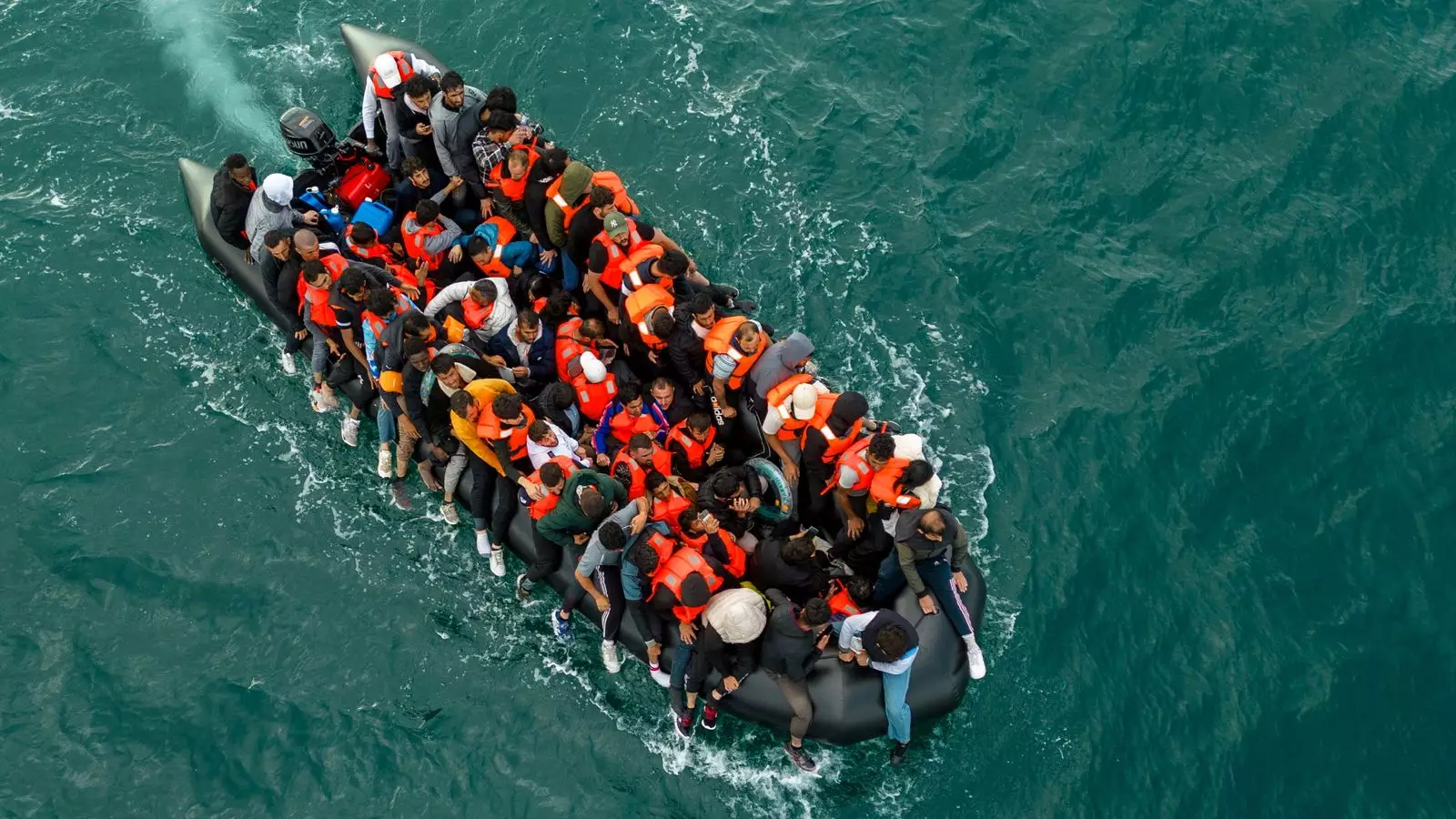In a significant alteration to immigration policy, the UK Home Office has issued new guidance indicating that migrants who arrive in the country illegally, through dangerous routes such as small boats or hidden in vehicles, will be denied the opportunity for British citizenship. This shift, effective from February 10, has far-reaching implications for refugees seeking to establish lives in the UK. This policy change not only alters the criteria for what constitutes “good character” but also fundamentally redefines the country’s approach to migration and citizenship.
The guidelines clarify that anyone who undertakes perilous journeys to enter the UK—which explicitly includes traveling in small boats or concealed transport—will typically face citizenship rejection. This marks a decisive move away from previously more accommodating policies, where individuals could still be considered for citizenship after a waiting period, regardless of how they entered the country. The government’s assertion that these changes are designed to “further strengthen” existing measures aligns with an increasingly hardline stance on illegal immigration.
The frequency of migrants arriving via dangerous methods has escalated alarmingly, with reports indicating a nearly 30% increase since the Labour Party assumed office. The figures reveal that approximately 25,000 individuals made such treacherous crossings in a recent consecutive timeframe, a statistic that marks the second-highest record since data collection began in 2018. This trend raises pressing questions about the underlying socio-political conditions prompting individuals to opt for perilous migration routes.
Critics argue that rather than addressing the root causes of mass migration, this policy merely criminalizes and punishes vulnerable populations. With the figures reflecting a growing crisis, the insensitivity of denying citizenship to those who have already experienced life-threatening conditions only exacerbates their plight.
Opposition from various quarters—including Labour MPs and refugee advocacy organizations—has been vocal and robust. They contend that the new policy creates an untenable situation for individuals granted refugee status, allowing them to reside in the country while simultaneously denying them a legitimate pathway to full societal inclusion. Labour MP Stella Creasy recently highlighted this concern, urging prompt revisions to the guidance to ensure that refugees are not relegated to a permanent second-class status within UK society.
The Refugee Council has condemned the changes as counterproductive, arguing that they contradict what appears to be a public consensus favoring refugee integration. The notion that refugees should be impeded from fully participating in their new communities runs counter to the moral and humanitarian principles that underpin the asylum system.
A spokesperson for the Home Office has stated that existing regulations already create hurdles for those who arrive unlawfully, stressing that the new guidance enhances clarity in policy enforcement. However, the harsh implications of this decision cannot be overlooked. Such barriers limit not only the prospects of the individuals involved but also undermine the societal contributions they could offer if granted the opportunity for full citizenship.
As the Labour Party emphasizes tougher measures against human trafficking networks, the focus appears to be shifting toward punitive action rather than holistic reform. The passage of the Border, Security, Asylum and Immigration Bill further illustrates this inclination, as it seeks to dismantle previous initiatives aimed at providing asylum seekers with safer routes. This legislative approach raises critical inquiries regarding the ethical implications and humanitarian responsibilities that a nation should uphold.
The continuing lack of response from the Conservative leaders about these recent changes adds another layer of uncertainty to the discussion surrounding citizenship and immigration in the UK. As debate intensifies over the safest and most humane ways to address illegal immigration, it is crucial for policymakers to consider the long-term societal ramifications of creating a bifurcated status for immigrants—especially for those fleeing dire circumstances.
The recent changes in UK immigration policy demand a reevaluation of not just the legal frameworks but also the ethical frameworks within which these policies operate. As nations grapple with the complexities of global migration, it becomes increasingly clear that policies fostering inclusion are far more beneficial than those that reinforce division. In fostering a compassionate approach, the UK could better serve both refugees and its own interests, promoting a more cohesive and accepting society. As these discussions continue, it is crucial to center the experiences and contributions of migrants rather than merely viewing them through the lens of legality and enforcement.


Leave a Reply